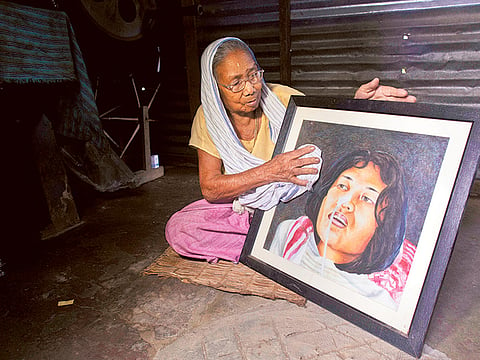Five things to know about India’s ‘Iron Lady’
Five things to know about India’s ‘Iron Lady’

Who is Irom Sharmila?
The 44-year-old poet and activist was born in a small village in the remote and insurgency-wracked northeast Indian state of Manipur. She belongs to the Meitei ethnic group who dominate Manipur.
She began fasting in 2000 after allegedly witnessing the army kill 10 people at a bus stop near her home.
She has been held in judicial custody almost ever since, and has spent much of the last 16 years confined to a hospital ward.
What is her hunger strike about?
She is campaigning for the repeal of the Armed Forces Special Powers Act (AFSPA) in Manipur, a remote and impoverished Indian state that is home to a number of separatist insurgent groups.
The controversial act allows India’s security forces to shoot on sight and arrest anybody without a warrant and is in force in Indian-administered Kashmir and across much of the northeast.
Last month the Supreme Court ordered an investigation into the use of “excessive and retaliatory” force by police and the military in Manipur.
How has she been kept alive?
She has been force-fed via a nasal drip in hospital. Images taken when she emerges from hospital to make one of her frequent court appearances in Manipur show her looking emaciated and frail, with plastic tubes taped to her nose.
What will she do next?
She plans to stand for office in upcoming state elections in Manipur and continue her fight through politics for the repeal of the AFSPA. She has said she will stand as an independent candidate.
She has also said she intends to marry her fiance, a British national of Indian origin, whom she has corresponded with by letter.
How much support does she have?
Amnesty International declared her a Prisoner of Conscience in 2013 and she has received several prestigious international prizes, including a lifetime achievement award from the Asian Human Rights Commission.
But support in her home state has waned and in recent years she has hinted at her frustration with this.
Some in Manipur have criticised her choice of partner because he is from outside the state, with one insurgent group threatening to kill her if she marries him.



